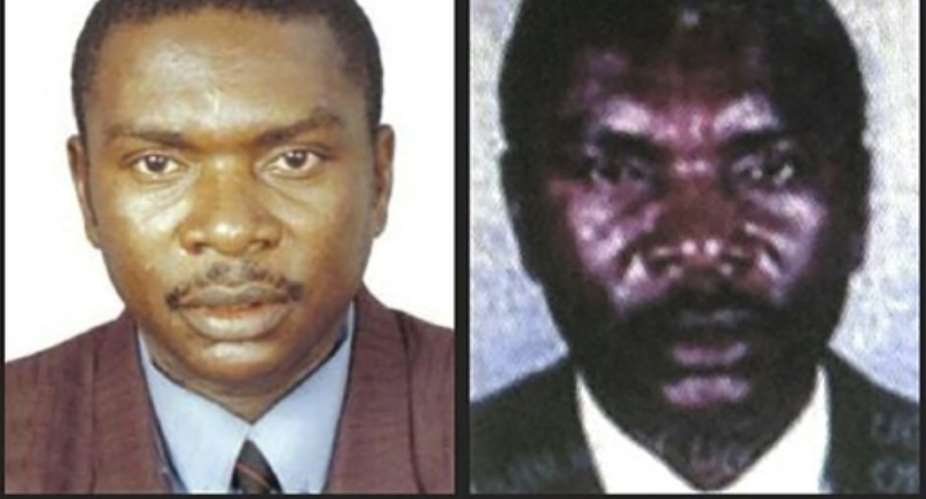The death of the last major fugitive wanted for his role in the 1994 Rwandan genocide was a "loss to justice", the main support group for survivors of the killings said Friday.
The United Nations on Thursday announced that Protais Mpiranya, who commanded a feared unit accused of targeted assassinations during the 100-day massacre in Rwanda, had died in 2006.
"The confirmation of Protais Mpiranya's death is a loss to justice because he did not appear before courts to be tried for the crimes he committed," Jean Damascene Kalinda, a legal representative for the Ibuka survivors' association, told AFP.
Mpiranya, who commanded the presidential guard, became the top priority for investigators in May 2020 following the arrest of alleged genocide financier Felicien Kabuga near Paris.
He was charged with war crimes, genocide and crimes against humanity and prosecutors spent more than two decades looking for him following his indictment by the International Criminal Tribunal for Rwanda in 2000.
But in fact he had died of tuberculosis nearly 16 years ago.
Mpiranya was allegedly among those who ordered the murder of then prime minister Agathe Uwilingiyimana, 10 Belgian soldiers protecting her, and several other leading politicians and their families on April 7, 1994, in the early hours of the genocide.
After an indictment was issued against him, Mpiranya fled to Zimbabwe in late 2002, where he lived until his death in 2006, UN prosecutors said.
His death did not uphold the promise "that no one is above the law," said Kalinda, who urged countries to do more to arrest genocide suspects.
"Where he lived from 1994 to 2006 when he died, those countries had the responsibility to arrest him and present him to justice, but it was not done," he said.
Mpiranya, who was believed to be around 46 at the time of his death, was using the alias of Ndume Sambao, according to prosecutors.
His family and associates had gone to great lengths to hide his death, including preparing a tombstone that misidentified him, to ensure that few would know his true fate.
Some 800,000 mainly Tutsis and moderate Hutus were beaten, hacked or shot to death in the genocide, a roughly 100-day killing spree carried out mostly by Hutu forces.





 'Kill whoever will rig Ejisu by-election' – Independent Candidate supporters inv...
'Kill whoever will rig Ejisu by-election' – Independent Candidate supporters inv...
 Ashanti Region: ‘Apologize to me for claiming I owe electricity bills else... – ...
Ashanti Region: ‘Apologize to me for claiming I owe electricity bills else... – ...
 Ghana is a mess; citizens will stand for their party even if they’re dying — Kof...
Ghana is a mess; citizens will stand for their party even if they’re dying — Kof...
 Internet shutdown an abuse of human rights — CSOs to gov't
Internet shutdown an abuse of human rights — CSOs to gov't
 Free SHS policy: Eating Tom Brown in the morning, afternoon, evening will be a t...
Free SHS policy: Eating Tom Brown in the morning, afternoon, evening will be a t...
 Dumsor: A British energy expert 'lied' Ghanaians, causing us to abandon energy p...
Dumsor: A British energy expert 'lied' Ghanaians, causing us to abandon energy p...
 What a speech! — Imani Africa boss reacts to Prof. Opoku Agyemang’s presentation
What a speech! — Imani Africa boss reacts to Prof. Opoku Agyemang’s presentation
 Dumsor: Tell us the truth — Atik Mohammed to ECG
Dumsor: Tell us the truth — Atik Mohammed to ECG
 Dumsor: Don't rush to demand timetable; the problem may be temporary — Atik Moha...
Dumsor: Don't rush to demand timetable; the problem may be temporary — Atik Moha...
 Space X Starlink’s satellite broadband approved in Ghana — NCA
Space X Starlink’s satellite broadband approved in Ghana — NCA
